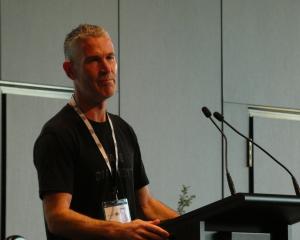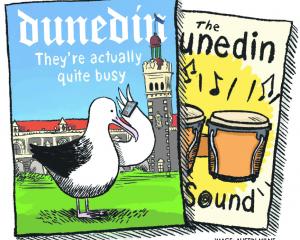For the second time in eight weeks, fertiliser supplier Ravensdown has reduced prices to farmers by 20% to 30% on its three mainstay products.
The result is a potential overall saving to users of $250 million this year.
The price cutting is being driven by lower international prices, and Ravensdown's selling off of some excess foreign exchange (US dollars) hedging, which could potentially reap it $NZ5 million on sales of $US10 million ($NZ18.8 million) in the near future.
However, the farmer-owned co-operative fertiliser company also issued a cautionary note.
It was not confident the lower international fertiliser prices would stay, chairman Bill McLeod said yesterday.
Urea was $1111 per tonne in December, then fell to $860.
Yesterday, the price was cut by 19% to $695.
Superphosphate was $560 per tonne then fell to $540 before yesterday's 20% cut took it to $429.
DAP was $1783 per tonne before the first cut to $1467, with a further 32% drop yesterday to $995 per tonne.
Mr McLeod said the Ravensdown cuts were timely, coming the day after Fonterra slashed its forecast milk-solid payout.
"These reductions will save farmers a quarter of a billion dollars [annualised] compared with these peak prices that were in force before Christmas," Mr McLeod said.
Fonterra's removal of 90c from the kg/ms equated to a $1.1 billion economic loss.
However, the overall reduction from last year's $7.90 kg/ms payout to $5.10 equated to a $2.4 billion fall for New Zealand's economy.
Ravensdown chief executive Rodney Green said the saving to farmers, from Ravensdown and similarly-sized market-share rival Ballance Agri-Nutrients, could be around $500 million and represented a sizeable off-set compared with the $1.1 billion Fonterra cut.
He said the effects of the falling Fonterra payout were similar to the impact on dairy farmers following loss of fertiliser subsidies in the mid-1980s.
That led to a spike in fertiliser use, from which some farms took up to five years to recover.
"If the dairying sector stops using fertiliser, they are not only looking at the lower payout but also lower volumes."
Mr Green outlined the potential for a $5 million gain from selling some of Ravensdown's excess US-dollar hedgebook and the positive effect of falling international prices for farmers, but reiterated farmers should consider locking in gains from falling prices sooner rather than later.
"What we're saying to farmers is `don't come in during May to order and expect the same prices'."
He said there had been no significant fall in the international price of superphosphate raw material, and Ravensdown was "sitting on" a significant phosphate rock stock.
It would use the sale of excess hedging to bring forward a decline in superphosphate prices.












